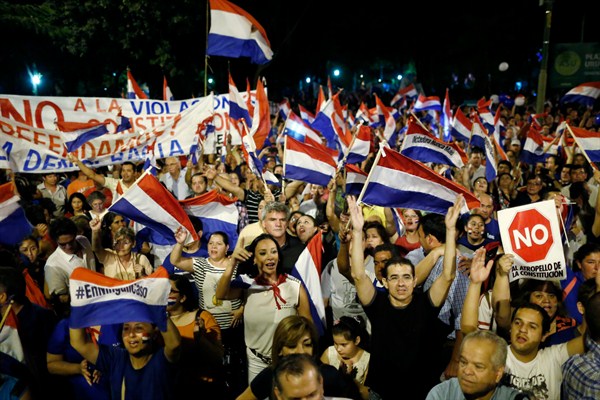ASUNCION, Paraguay—A month after rioters set fire to Paraguay’s Congress, President Horacio Cartes has abandoned his contentious plans to change the constitution to allow him to run for a second term in 2018. But a corrupt party system and factionalism among Paraguay’s elites pose a greater threat to representative government in one of the poorest countries in South America.
On April 26, the lower house of Paraguay’s legislature, the Chamber of Deputies, rejected a bill to amend the country’s constitution to allow former and current presidents to run again. Nine days earlier, Cartes, a tobacco magnate who is one of Paraguay’s wealthiest businessmen, had defused the immediate crisis when he abruptly ruled out trying to run for re-election. The parliamentary vote definitively torpedoed his effort to push an amendment through Congress that contravened the constitution.
The Chamber of Deputies’ vote was an anti-climactic end to a dramatic month marked by the burning of part of the Congress building on March 31, soon after the Senate voted in favor of the amendment behind closed doors. The debacle over changing the constitution might seem like a momentary flare-up, but it exposed the ongoing challenges to Paraguay’s democracy.

